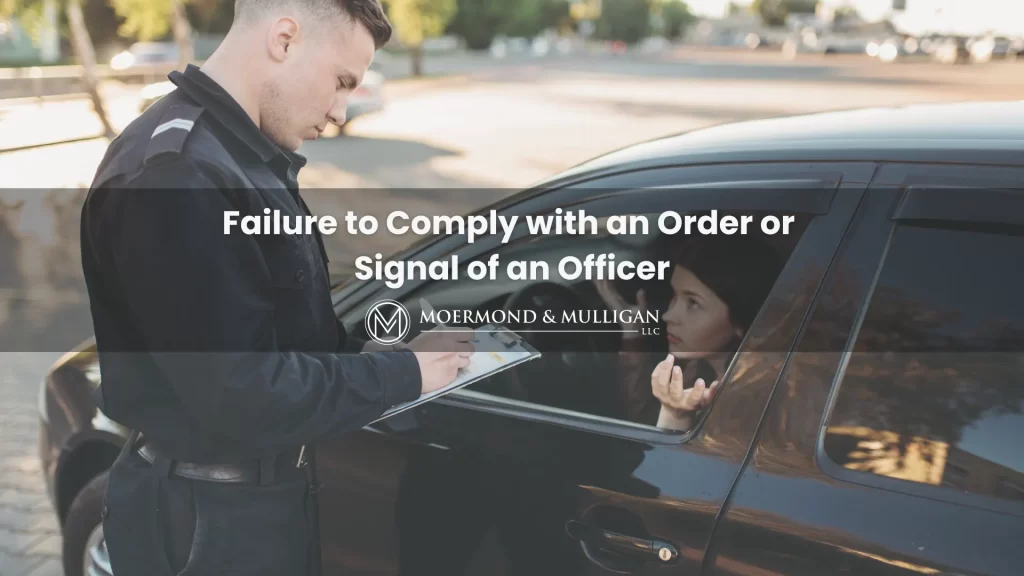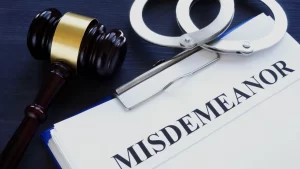 The relationship between law enforcement and civilians is often fraught with tension and mistrust. This is particularly true in cases where an individual fails to comply with an order or signal of an officer. In failure to comply cases, emotions can run high, and misunderstandings can occur, leading to serious legal consequences.
The relationship between law enforcement and civilians is often fraught with tension and mistrust. This is particularly true in cases where an individual fails to comply with an order or signal of an officer. In failure to comply cases, emotions can run high, and misunderstandings can occur, leading to serious legal consequences.
In this article, we will delve deeper into the topic of failure to comply with an order or signal of an officer, discussing some of the factors that can contribute to this offense and exploring some of the defenses that may be available.
Factors Contributing to Failure to Comply with an Order or Signal of an Officer
Several factors can contribute to a failure to comply with an order or signal of an officer. One of the most common is simply a lack of understanding. Sometimes, people don’t understand orders due to language barriers or communication issues. This can be particularly problematic in high-stress situations where people must make quick decisions.
Another factor that can contribute to a failure to comply with an order or signal of an officer is fear or confusion. When law enforcement officers confront individuals, the individuals may feel intimidated or overwhelmed, which can lead to a heightened state of anxiety or fear. In some cases, individuals may simply freeze or become unable to respond, leading to a failure to comply with the officer’s orders.
Finally, some individuals may not comply, feeling unjustly targeted or treated unfairly by officers. This can be particularly problematic in cases where there is a history of discrimination or other forms of mistreatment, as individuals may be more likely to resist or refuse to comply with an officer’s orders.
Possible Defenses for Failure to Comply with an Order or Signal of an Officer
Several possible defenses may be available in cases involving a failure to comply with an order or signal of an officer. A strong argument is that the order or signal wasn’t clear or understandable. This can be particularly effective in cases where there was a language barrier or other communication difficulties that made it difficult for the individual to understand what was being asked of them.
Another possible defense is to argue that the individual was unable to comply with the order or signal due to factors beyond their control. This might include situations where the individual was physically unable to comply due to an injury or other health condition or where compliance would have put the individual in danger (such as stopping on a busy highway).
It may also be possible to argue that the officer acted inappropriately or used excessive force when giving the order or signal. This can be particularly effective in cases where the officer’s actions were clearly outside of their lawful authority or where they acted with malice or intent to harm.
Finally, it may be possible to argue that the individual was justified in failing to comply with the order or signal due to circumstances that made compliance impossible or impractical. For example, if the individual was in the process of evacuating their home due to an emergency, they may not have been able to comply with the officer’s orders to stay put.
Penalties for Failure to Comply with an Order or Signal of an Officer
 The penalties for failure to comply with an order or signal of an officer can vary depending on the circumstances of the case. In general, this misdemeanor can result in 6 months of jail time and $1,000 fines. However, if the failure to comply results in injury to a law enforcement officer or another individual, the offense may be charged as a felony, which can carry much more severe penalties.
The penalties for failure to comply with an order or signal of an officer can vary depending on the circumstances of the case. In general, this misdemeanor can result in 6 months of jail time and $1,000 fines. However, if the failure to comply results in injury to a law enforcement officer or another individual, the offense may be charged as a felony, which can carry much more severe penalties.
In addition to criminal penalties, a conviction for failure to comply with an order or signal of an officer can also have other consequences. For example, individuals who are convicted of this offense may lose their driver’s license or have their driving privileges restricted. They might also need to attend classes or counseling for underlying issues.
Furthermore, a conviction for failure to comply with an order or signal from an officer can have long-term consequences for an individual’s employment prospects, housing opportunities, and other areas of their life. This is particularly true for individuals who work in professions that require a clean criminal record or those seeking to obtain professional licenses.
Contact Moermond & Mulligan, LLC for Help with Charges of Failure to Comply
Failure to comply with an order or signal of an officer can have serious legal consequences, including criminal penalties and long-term consequences that can affect an individual’s life in many ways. However, several possible defenses may be available in these cases, and it is important to work with an experienced criminal defense attorney who can help you navigate the legal system and protect your rights.
At Moermond & Mulligan, LLC, our Cincinnati criminal defense lawyers have extensive experience representing individuals facing charges of failure to comply with an order or signal of an officer. We understand the complex legal and factual issues involved in these cases, and we work tirelessly to protect our clients’ rights and help them achieve the best possible outcome.
If you have been charged with a traffic offense or have questions about your legal rights, please contact us at (513) 421-9790 to schedule a consultation. Our team of experienced lawyers is to help you every step of the way.
Last Updated: 04-07-2025